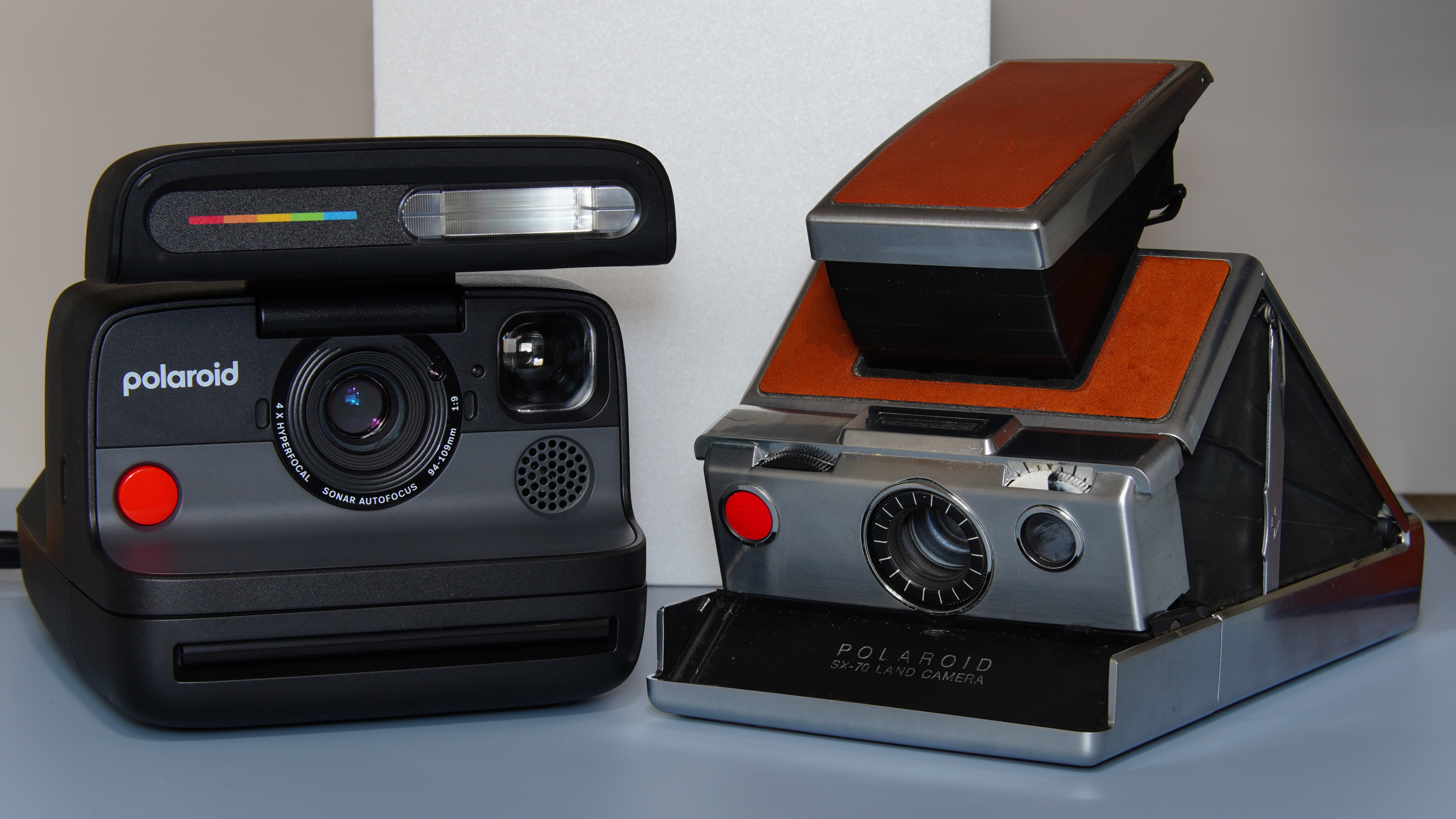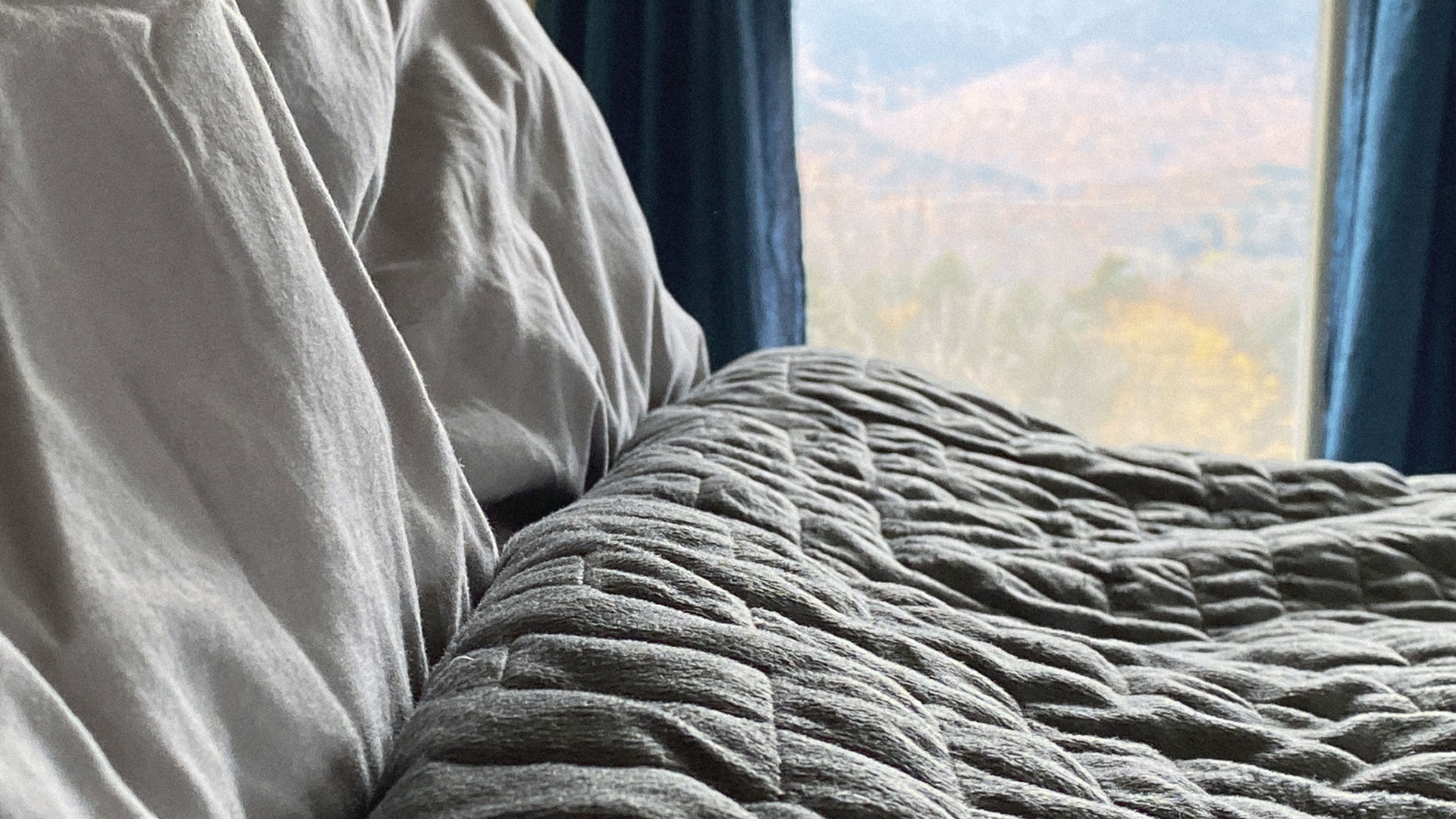

What is a cooling weighted blanket and how can it help with better sleep? A cooling weighted blanket is simply a new iteration of a regular weighted blanket, but one with temperature regulation features factored in. You'll find more detail in our What is a weighted blanket? explainer, but essentially a weighted blanket is exactly what it sounds like – a blanket that's extra-heavy, typically because it has tiny weights built in. One of the big benefits associated with them is that they can help people sleep better. But if you tend to sleep hot, you may find even the best weighted blankets cause you to overheat in warmer weather. And that's where cooling weighted blankets come in. This article will take a closer look at exactly what a cooling weighted blanket is, how it works and who it's good for.
What is a cooling weighted blanket?
Weighted blankets – sometimes called 'gravity blankets', after the brand that were instrumental in them hitting the mainstream – were once a tool of therapists. But what is a cooling weighted blanket and how can it help?
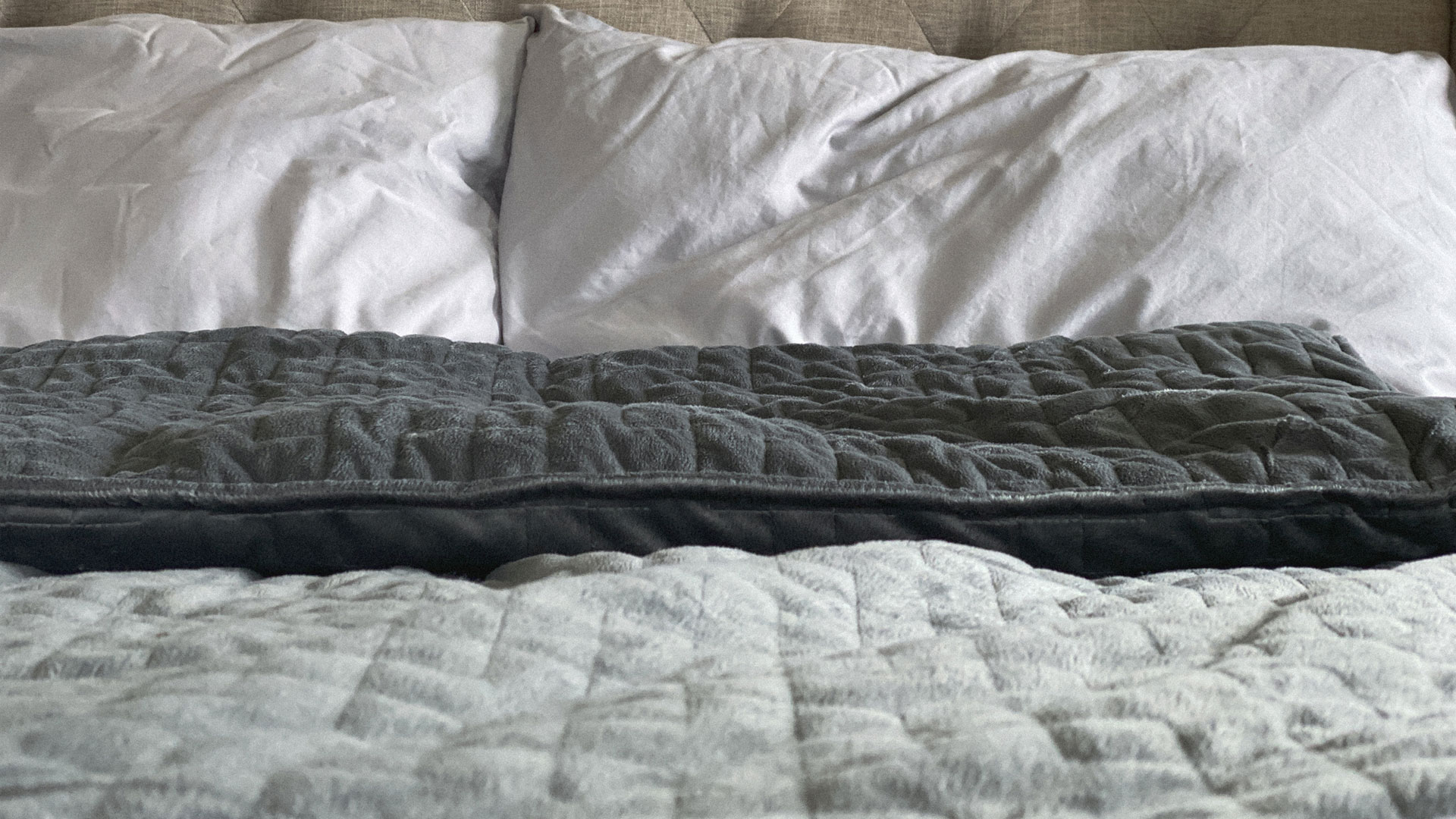
As the name suggests, it’s a regular weighted blanket but made with special technology to help keep you cool at night. When your body temperature is higher, either naturally or due to a health condition such as the menopause, you might find it harder to fall or stay asleep and that’s where a cooling weight blanket can really help.
Designed for breathability, cooling weighted blankets are filled with tiny plastic or glass beads, which have a moisture-wicking effect that moves the heat away from your body.
How is a cooling weighted blanket different?
Weighted blankets can weigh between 5-30lbs (2-13kg) and use 'deep touch pressure' to relax the nervous system, a therapeutic technique that could help reduce anxiety, symptoms of depression and improve sleep quality, said a study by the Northampton Center for Children and Families.
Sleep coach Dave Gibson told T3: "Weighted blankets are based on the principle that when we swaddle or hug, the sense of pressure applied helps us to relax and reduce our anxiety, which in turn helps us get to sleep more easily." This promotes relaxation and releases calming and feel-good chemicals serotonin (nature’s antidepressant) and dopamine to make you sleepy.
So what’s the difference between an ordinary and a cooling weighted blanket? Gibson said: "One of the latest developments within weighted blankets are ones that allow the body to ‘thermoregulate’ and cool at night. The benefit here is that our core temperature needs to drop by 1 degree during sleep to get the best quality of sleep. So, if we are too warm, we don’t get a good night’s rest. In fact, the best temperature for our bedroom is between 60 to 67F (15.6 to 19.4C) for the most comfortable sleep, which is quite cool.
Sign up to the T3 newsletter for smarter living straight to your inbox
Get all the latest news, reviews, deals and buying guides on gorgeous tech, home and active products from the T3 experts
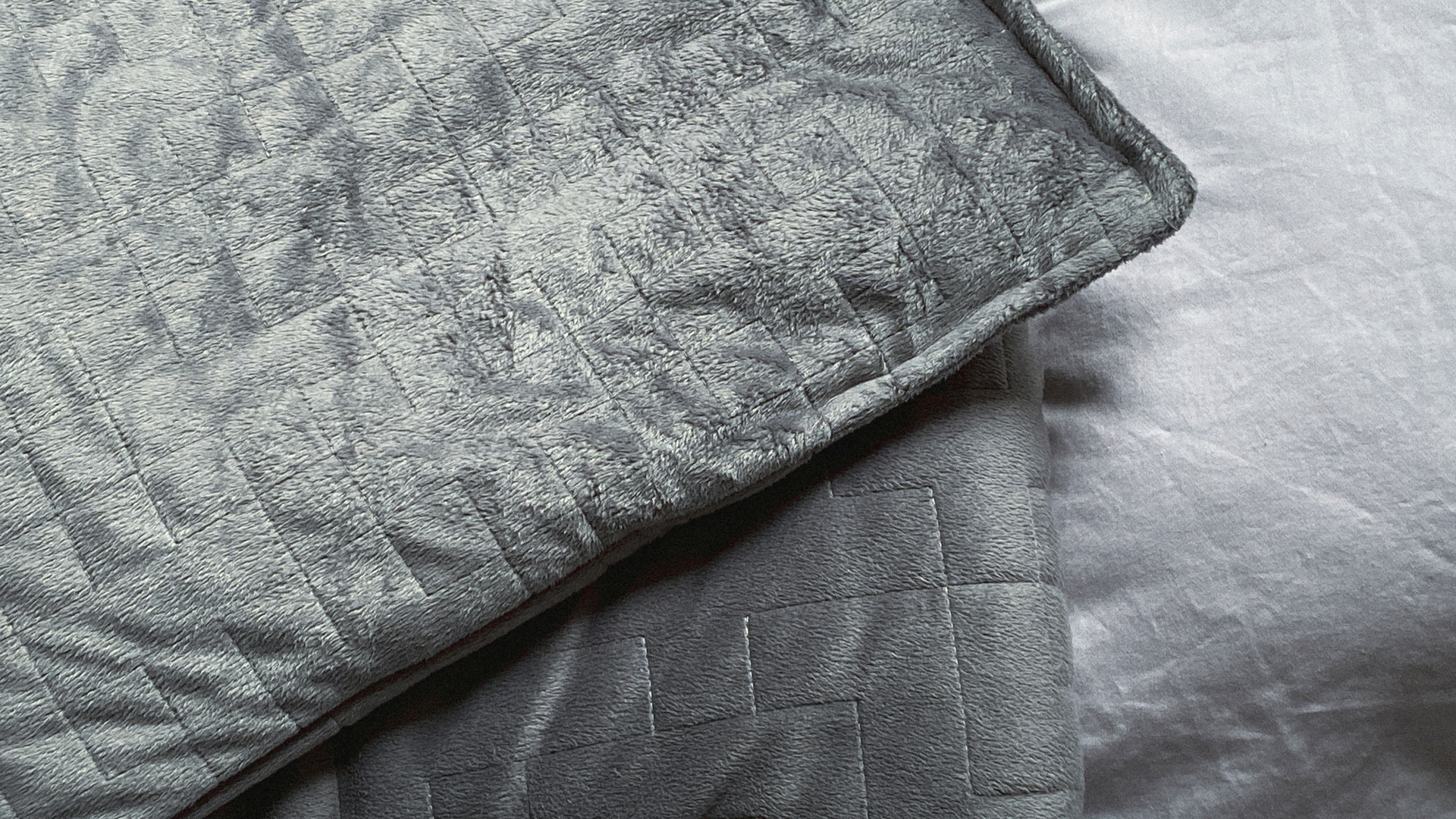
"Cooling weighted blankets can also come into their own for those who are suffering from hot flashes during illness or menopause. If you like being swaddled or hugged tightly at night, the cozy feeling of a weighted blanket could be for you. If you are thinking of investing in a weighted blanket and currently use a lighter duvet it might be worth seeing how it feels using heavier coverings or adding a normal blanket first."
It’s also advised to choose a weighted blanket that is 10 per cent of your bodyweight. If you fall between weight options, then size up.
Why is sleep so important?
Why is good quality sleep so important? There are major benefits for both physical health and general wellbeing. When we're asleep, the body and mind get the chance to recharge and grow new cells and muscles. Sufficient sleep, especially REM, the deepest sleep stage, also helps the brain to process emotional information and form thoughts and memories.
Dave explains: "Every cell in the body goes into sleep mode at night, repairing and restoring both the body and brain. Our immune system gets a boost during sleep. When we don't get enough sleep, our bodies essentially go into fight or flight mode, which disrupts our entire body clock and hormone regulation."
This has both short- and long-term effects to not getting enough sleep. "In the short term we lose our focus and ability to think clearly. Memory consolidation is lost, we can’t concentrate, and our coordination goes, so much so that if we are getting under six hours sleep it’s equivalent to being legally drunk!" says Dave. "Our metabolism is also affected, and we start to crave sugary and fatty foods, putting on weight. Longer term there is an increased risk of heart disease, stroke, diabetes and even Alzheimer’s."
What are the other benefits of a cooling weighted blanket?
Aside from better sleep, one of the biggest draws of a cooling weighted blanket is reduced anxiety symptoms, according to a 2018 review of eight studies published by the American Occupational Therapy Association (although more research is needed on this topic).
Another 2020 study, published in the The Journal of Clinical Sleep Medicine, found that 120 people with major depressive disorder, bipolar disorder, generalized anxiety disorder, and attention deficit hyperactivity disorder had better sleep, less fatigue and reduced depression when sleeping with a weighted blanket.
Because of the deep touch pressure of a weighted blanket, they can promote a relaxing effect. This in turn decreases the body’s ‘fight or flight’ impulse by calming down the sympathetic system of your autonomic nervous system, reducing the level of cortisol (the stress hormone). The deep touch pressure of a weighted blanket also increases endorphin levels and happy hormones serotonin and dopamine, responsible for mood regulation. It’s also known to stimulate parts of the brain that are responsible for sleep and the production of melatonin.
While cooling weighted blankets can be beneficial, manufacturers warn that they shouldn’t be used for children aged two or under, due to risk of suffocation. They may also not be suitable for people with obstructive sleep apnea, which causes disrupted breathing during sleep, asthma, which can cause difficulty breathing at night, or anyone with claustrophobia, which the tightness of a weighted blanket may trigger.
Maddy Biddulph is a national journalist and content creator specialising in lifestyle, fitness, health and wellbeing.
-
 Oil pulling is going viral on TikTok for stopping morning breath – but does it actually work?
Oil pulling is going viral on TikTok for stopping morning breath – but does it actually work?4 hacks that prevent morning breath, according to a sleep expert
By Bethan Girdler-Maslen
-
 5 sleep supplements that help me achieve 8+ hours of rest every night
5 sleep supplements that help me achieve 8+ hours of rest every nightIt took me years to perfect my sleep routine – here are the supplements that helped
By Lizzie Wilmot
-
 3 reasons why you wake up at 3am every night – and how to avoid it
3 reasons why you wake up at 3am every night – and how to avoid itAlways waking up in the middle of the night? This could be why…
By Bethan Girdler-Maslen
-
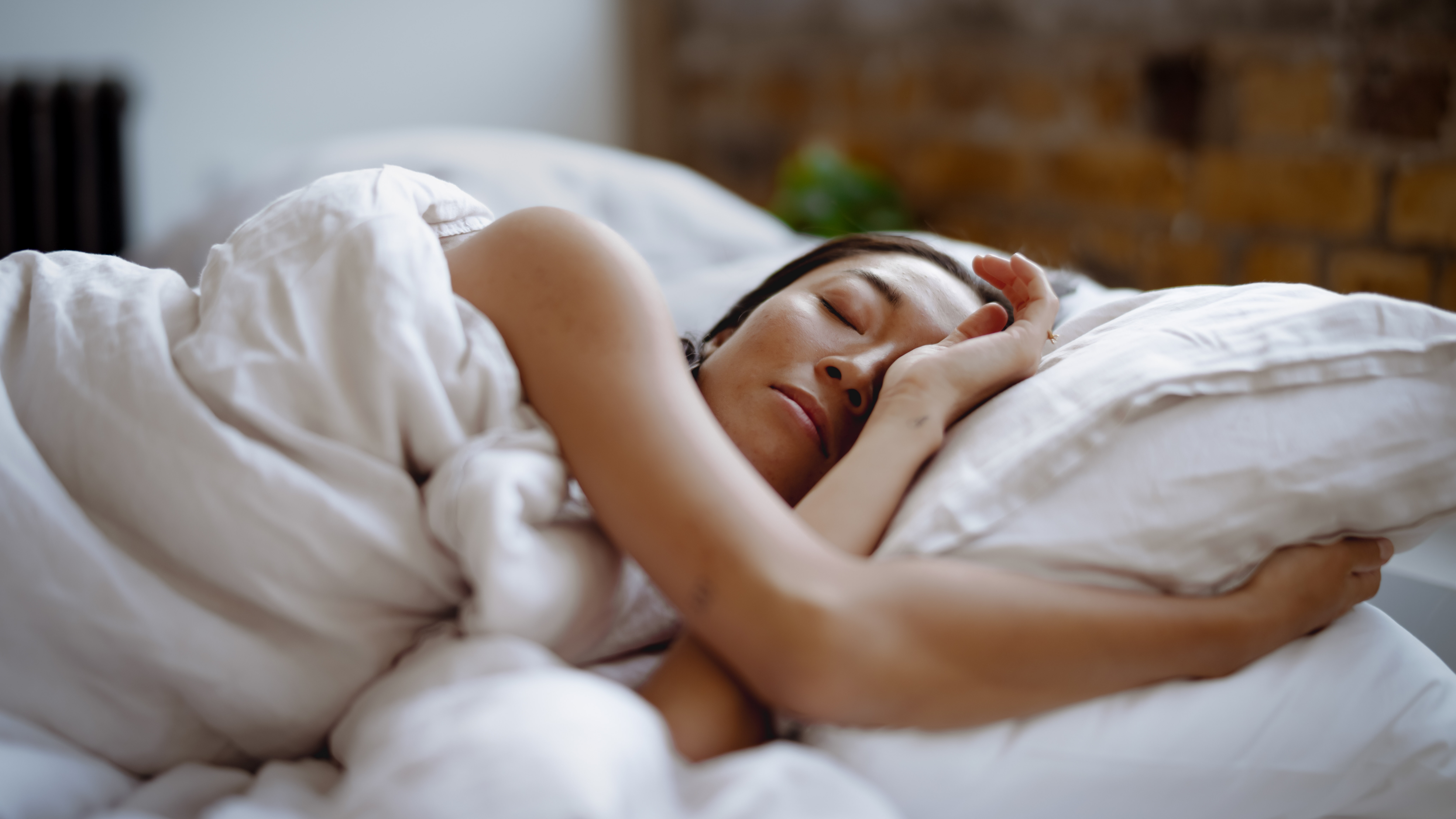 This tiny device will automatically disable your distracting apps before you sleep
This tiny device will automatically disable your distracting apps before you sleepSay hello to Kip...
By Lizzie Wilmot
-
 Therabody experts give 7 tips for perfecting your sleep routine for World Sleep Day
Therabody experts give 7 tips for perfecting your sleep routine for World Sleep DayFrom breathing exercises to sleep masks, here’s how to prioritise sleep, according to experts
By Bethan Girdler-Maslen
-
 Can’t get to sleep? Grounding bed sheets could be the answer – but I need convincing
Can’t get to sleep? Grounding bed sheets could be the answer – but I need convincingIs this the future of sleep tech?
By Bethan Girdler-Maslen
-
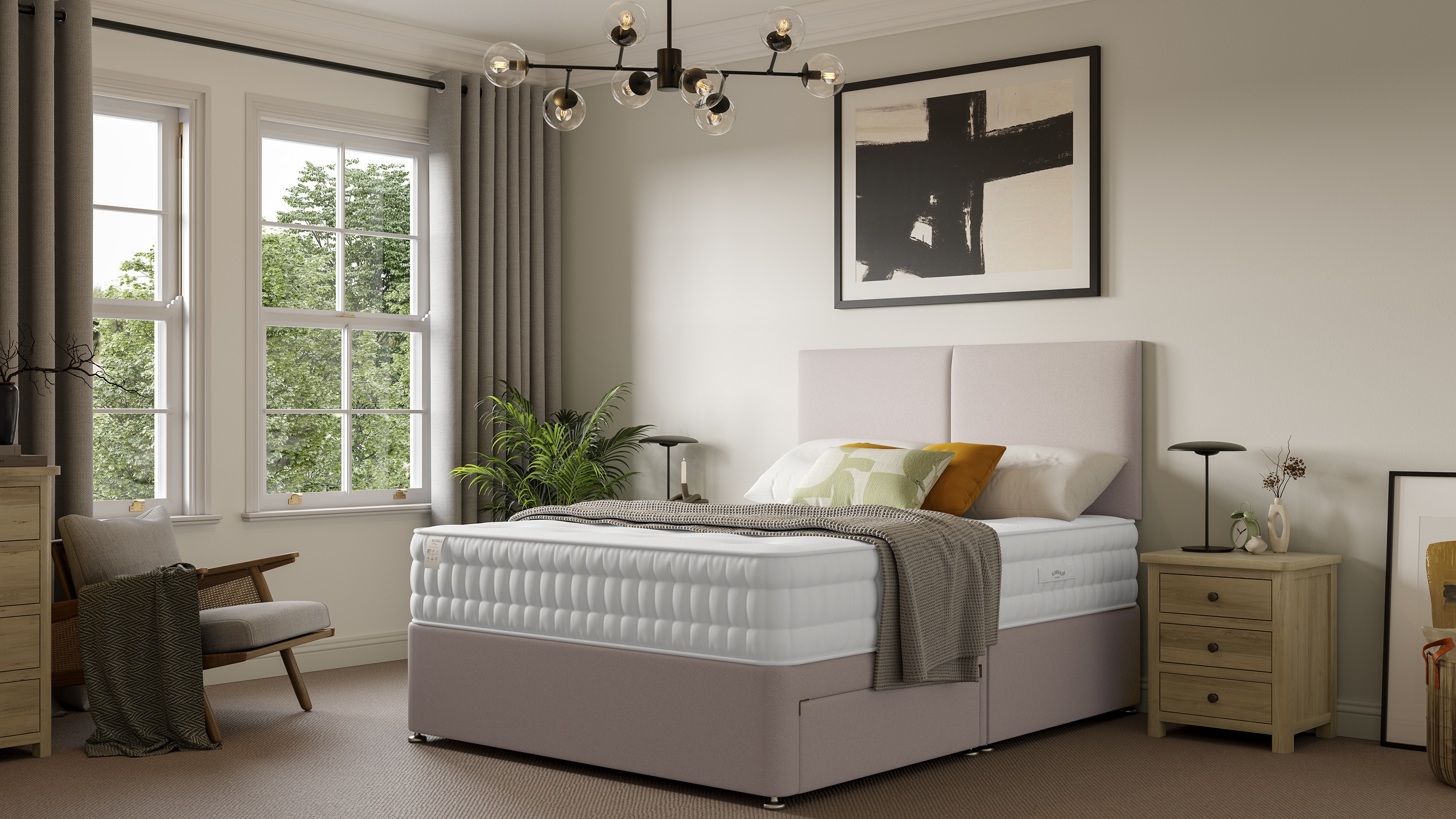 Bensons for Beds Slumberland Naturals Plant-Based Luxe Mattress review: premium comfort and exceptional quality
Bensons for Beds Slumberland Naturals Plant-Based Luxe Mattress review: premium comfort and exceptional qualityA top choice for comfort, durability and sustainability
By Lizzie Wilmot
-
 Simba reveals 3 shocking signs of sleep deprivation on the body
Simba reveals 3 shocking signs of sleep deprivation on the bodySimba’s latest study reveals the main physical effects of sleep deprivation
By Bethan Girdler-Maslen
